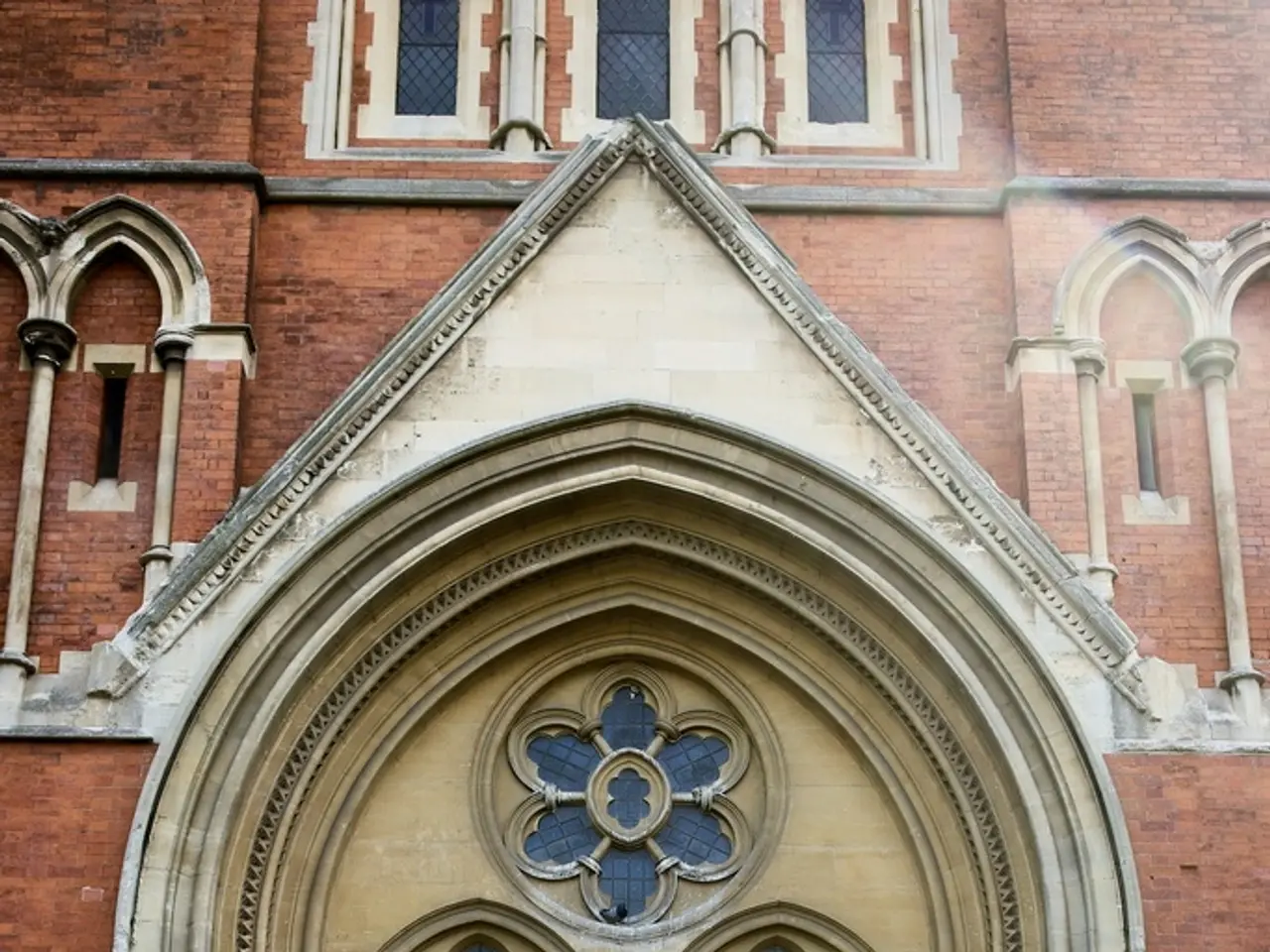Mosques in Southern England face substantial financial obligations for implementing heatproof measures
In the face of rising temperatures, London's mosques are adapting to provide a comfortable space for worshippers during the summer months. The East London Mosque, one of the largest in the city with a capacity of 7,000, is leading the way by installing a building-wide air conditioning system, following years of offering respite from hot weather in its prayer halls.
The mosque has also taken steps to make water readily available, with water fountains and refrigerators stocking water bottles placed in accessible areas. This initiative is particularly welcome during the current heatwave, as temperatures in Kent peaked at 35.8C at the start of July, and further heatwaves are forecast for mid-August.
However, the challenge of cooling down mosques, particularly older or converted buildings not originally designed for large congregations or cooling systems, is a significant one. Older buildings, such as the one occupied by the Chelmsford mosque, retain heat and release it slowly, making them particularly hot in summer.
The East London Mosque's refurbishment plan, costing half a million pounds, includes measures to improve ventilation and add shading devices like blinds to reduce solar heat gain. Similar retrofitting methods, including installing air conditioning systems, enhancing natural ventilation with openable windows, and adding shading devices, are being considered by other mosques to address the heat issue.
Air conditioning is expensive, and smaller places of worship will rely on donations from their congregations for funding. The East London Mosque, like many others, is one of those that rely on donations for air conditioning. Muslim organisations are hopeful that local authorities could introduce "cool spaces" grants to help fund cooling measures for mosques.
Dr Naomi Green, assistant secretary general at the Muslim Council of Britain, has highlighted that mosques located in converted buildings may not have been designed with necessary cooling measures. She emphasises that the evolving landscape of public funding increasingly embraces faith community decarbonization and resilience efforts that could indirectly support cooling upgrades.
Grants aimed at energy efficiency and sustainability could be leveraged for heat mitigation retrofits, reducing energy costs and emissions in religious buildings. For example, faith-based renewable energy initiatives, like solar panel installations and energy-efficient upgrades, have been funded through public sources such as UK Shared Prosperity Funds or Welsh Government Energy Service programs.
As the heatwaves continue, it is essential that mosques find solutions to keep their congregations comfortable. The Muslim Council of Britain is aware of the challenges and may provide guidance on collaborative approaches or funding options. Mosques interested in retrofitting for heat resilience should explore local government and community infrastructure grants related to climate adaptation, as well as partnerships with environmental organisations supporting faith-based energy projects.
[1] Muslim Council of Britain [2] Energy Saving Trust [3] The Guardian [4] The Telegraph [5] UK Government
- The Muslim Council of Britain, acknowledging the building challenges for mosques during summer heatwaves, may offer guidance on collaborative approaches or funding options, potentially through local government and community infrastructure grants related to climate adaptation.
- Mosques, eager to improve their home-and-garden and lifestyle, are turning to retrofitting and energy-efficient upgrades, with initiatives like solar panel installations and air conditioning systems, aiming to reduce energy costs and ensure a comfortable lifestyle for the community even in extreme temperatures.




